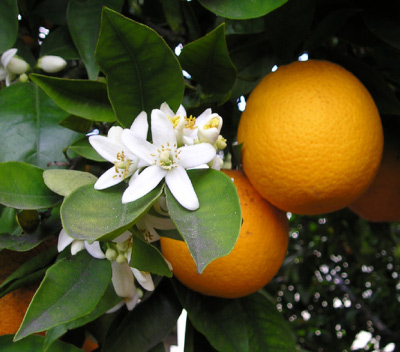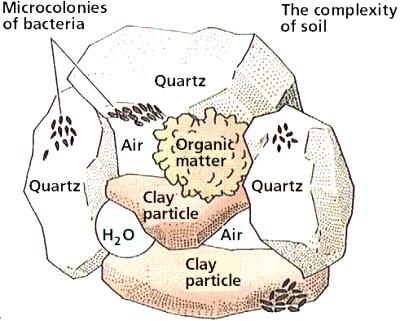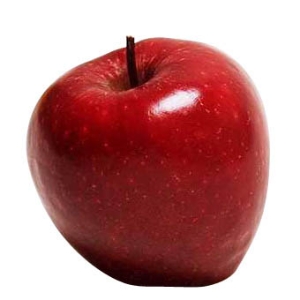
How to make your broccoli even more nutritious
 Did
you know that one study comparing Valencia oranges grown in Florida to
those grown in California showed that the former had only 33% of the
vitamin A found in the latter? Another study comparing the
biggest to the smallest red cabbages showed that the huge heads had
only 5% of the vitamin C by weight as the small heads. Clearly,
even within the same type of fruit or vegetable, growing conditions can
have a huge impact
on the quality of your food.
Did
you know that one study comparing Valencia oranges grown in Florida to
those grown in California showed that the former had only 33% of the
vitamin A found in the latter? Another study comparing the
biggest to the smallest red cabbages showed that the huge heads had
only 5% of the vitamin C by weight as the small heads. Clearly,
even within the same type of fruit or vegetable, growing conditions can
have a huge impact
on the quality of your food.
The Florida problem is
related to soil quality --- Florida's soil tends
to be sandy and lacking in organic matter, compared to the much richer
loams found in California's orange groves. Jerry Minnich explains
that organic matter is key to good food quality since the humus binds
soil together into aggregates, promotes microorganism growth, and as a
result holds onto micronutrients that quickly wash beyond the
reach of
crops in soil low on organic matter. If micronutrients aren't
within reach, your plants won't be able to provide those micronutrients
on your plate --- even plants are what they eat.
 The
solution is to add copious organic matter to your garden in the form
of compost, mulches, and cover crops. Minnich notes that manure
is a very good, all-around source of nutrients since most livestock
need many of the same micronutrients that you do, and tree leaves are
also especially useful since deep-rooted trees can soak up
micronutrients from the subsoil that are usually deficient in the
topsoil of your region. On the other hand, if you buy your food,
it might make sense to pay the extra money for organic since various
studies have shown that
organically grown produce has up to 3.6
times the vitamin C, 2.3 times the betacarotene, and 1.7 times the
protein as conventionally grown produce of the same type.
The
solution is to add copious organic matter to your garden in the form
of compost, mulches, and cover crops. Minnich notes that manure
is a very good, all-around source of nutrients since most livestock
need many of the same micronutrients that you do, and tree leaves are
also especially useful since deep-rooted trees can soak up
micronutrients from the subsoil that are usually deficient in the
topsoil of your region. On the other hand, if you buy your food,
it might make sense to pay the extra money for organic since various
studies have shown that
organically grown produce has up to 3.6
times the vitamin C, 2.3 times the betacarotene, and 1.7 times the
protein as conventionally grown produce of the same type.
Light is another very
important factor, especially in the vitamin C
content of your crops. I've noticed that certain crops
(particularly berries) are twice as sweet if harvested on a sunny
afternoon compared to on a rainy day. During sunny weather, your
crops not only produce those delicious sugars, they also stock up on
vitamin C --- one study showed that when a plant was shaded for 24
hours, it lost a fifth of its vitamin C content. Other studies
have suggested a similar loss of vitamin A and iron during low light
conditions. To prevent this nutrient loss in your garden, give
your crops space so that overlapping leaves don't shade the produce and
harvest your bounty in the afternoon.
 I feel like I can taste the
final factor resulting in watering down our produce's nutritional
powers as well --- overuse of synthetic
nitrogen fertilizer. Have you ever noticed how grocery store
apples taste like they've taken the flavor from an apple half that
size, combined it with half a cup of water, and left behind a crunchy
but nearly taste-free fruit? When plants are given too much
readily available nitrogen, they grow quickly, but don't suck up
micronutrients in the same proportion. The result is a big,
watery vegetable with little nutrition or taste. Organic sources
of nitrogen, on the other hand, tend to be released slowly over several
years and don't cause this problem.
I feel like I can taste the
final factor resulting in watering down our produce's nutritional
powers as well --- overuse of synthetic
nitrogen fertilizer. Have you ever noticed how grocery store
apples taste like they've taken the flavor from an apple half that
size, combined it with half a cup of water, and left behind a crunchy
but nearly taste-free fruit? When plants are given too much
readily available nitrogen, they grow quickly, but don't suck up
micronutrients in the same proportion. The result is a big,
watery vegetable with little nutrition or taste. Organic sources
of nitrogen, on the other hand, tend to be released slowly over several
years and don't cause this problem.
Feed your soil compost,
delete the high nitrogen fertilizer, and watch the sun --- that sounds
easy enough.
| This post is part of our Gardening for Maximum Nutrition lunchtime
series.
Read all of the entries: |
Want more in-depth information? Browse through our books.
Or explore more posts by date or by subject.
About us: Anna Hess and Mark Hamilton spent over a decade living self-sufficiently in the mountains of Virginia before moving north to start over from scratch in the foothills of Ohio. They've experimented with permaculture, no-till gardening, trailersteading, home-based microbusinesses and much more, writing about their adventures in both blogs and books.
Want to be notified when new comments are posted on this page? Click on the RSS button after you add a comment to subscribe to the comment feed, or simply check the box beside "email replies to me" while writing your comment.
- Remove comment
